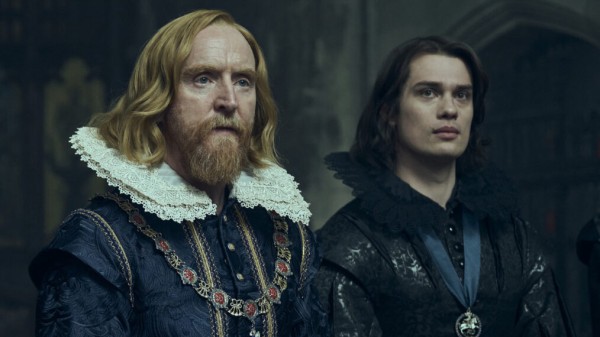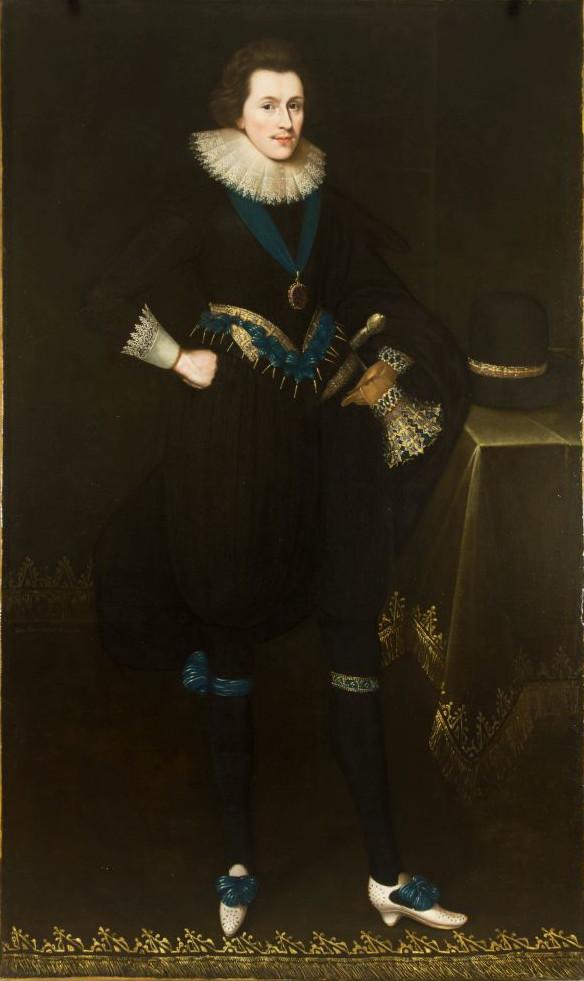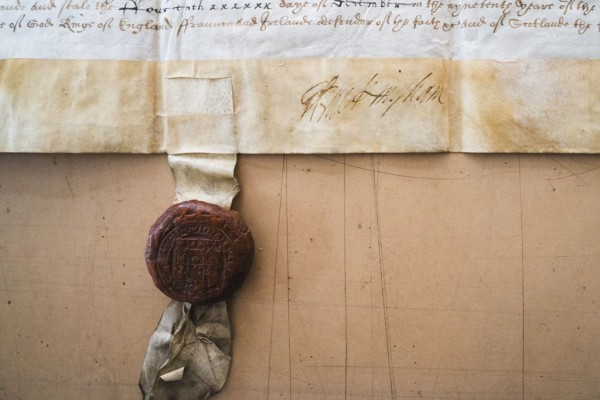Royal Favourite
Villiers was subject to speculation as to the nature of his relationship with King James I. Historical evidence details an intense closeness that we might describe as ‘Queer’ today. The King publicly lavished Villiers with kisses and declared himself as ‘husband’.

Tony Curran as King James I and Nicholas Galitzine as George Villiers
in ‘Mary & George’ © SKY UK
In 2024, Sky TV released 'Mary & George', a drama based on Villiers's life. It portrays his mother, Mary Villiers (played by Julianne Moore) as the architect of his rise to royal favourite and depicts James I as infatuated with George.

Courtier, idol, politician, sex symbol….lover?
For God so love me as I desire only to live in this world for your sake, and that I had rather lived banished in any part of the earth with you than live a sorrowful widow’s life without you.
King James I in a letter to Villiers in 1624
‘Favourite’, ‘just good friends’, 'companion’ or something more?
Today, speculation about their relationship continues. Previously, cultural historians have sometimes erased, misrepresented, or coded the language of LGBTQ+ lives.
Language like ‘just good friends’, ‘favourite’ or ‘companion’ have been used to describe queer lives and relationships in historical records or art history.
Rulers throughout the ages have had ‘favourites’. Trusted friends, advisers or lovers – sometimes all three. Wealth and power give rulers and monarchs the freedom to follow their own desires, rather than adhering to the moral, religious or other codes expected of their followers. Throughout British history, the reigning monarch has operated a system of favouritism by which loyalty, support and achievement have been rewarded with privileges, titles and membership of exclusive groups.


